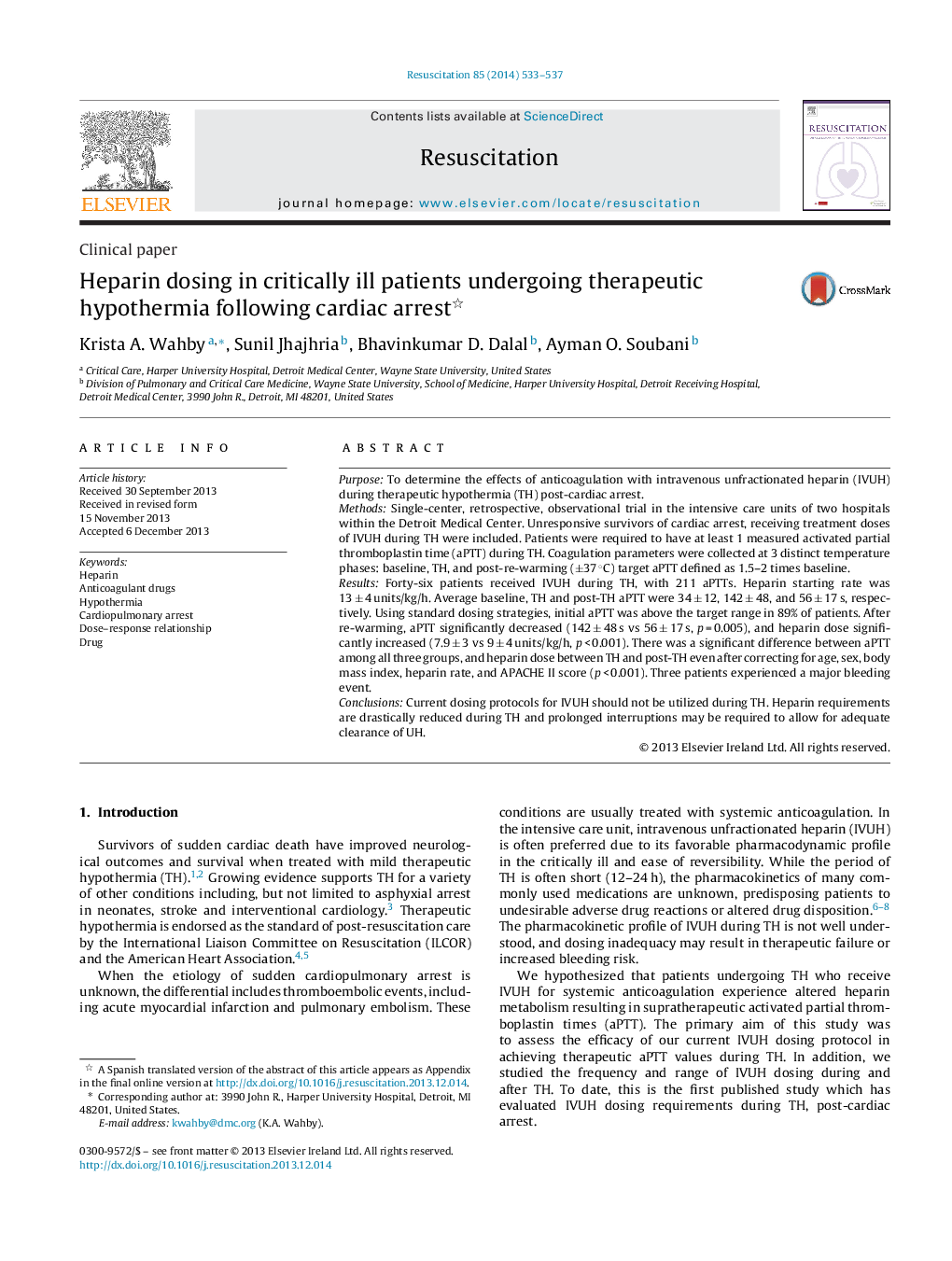| Article ID | Journal | Published Year | Pages | File Type |
|---|---|---|---|---|
| 5998853 | Resuscitation | 2014 | 5 Pages |
PurposeTo determine the effects of anticoagulation with intravenous unfractionated heparin (IVUH) during therapeutic hypothermia (TH) post-cardiac arrest.MethodsSingle-center, retrospective, observational trial in the intensive care units of two hospitals within the Detroit Medical Center. Unresponsive survivors of cardiac arrest, receiving treatment doses of IVUH during TH were included. Patients were required to have at least 1 measured activated partial thromboplastin time (aPTT) during TH. Coagulation parameters were collected at 3 distinct temperature phases: baseline, TH, and post-re-warming (±37 °C) target aPTT defined as 1.5-2 times baseline.ResultsForty-six patients received IVUH during TH, with 211 aPTTs. Heparin starting rate was 13 ± 4 units/kg/h. Average baseline, TH and post-TH aPTT were 34 ± 12, 142 ± 48, and 56 ± 17 s, respectively. Using standard dosing strategies, initial aPTT was above the target range in 89% of patients. After re-warming, aPTT significantly decreased (142 ± 48 s vs 56 ± 17 s, p = 0.005), and heparin dose significantly increased (7.9 ± 3 vs 9 ± 4 units/kg/h, p < 0.001). There was a significant difference between aPTT among all three groups, and heparin dose between TH and post-TH even after correcting for age, sex, body mass index, heparin rate, and APACHE II score (p < 0.001). Three patients experienced a major bleeding event.ConclusionsCurrent dosing protocols for IVUH should not be utilized during TH. Heparin requirements are drastically reduced during TH and prolonged interruptions may be required to allow for adequate clearance of UH.
